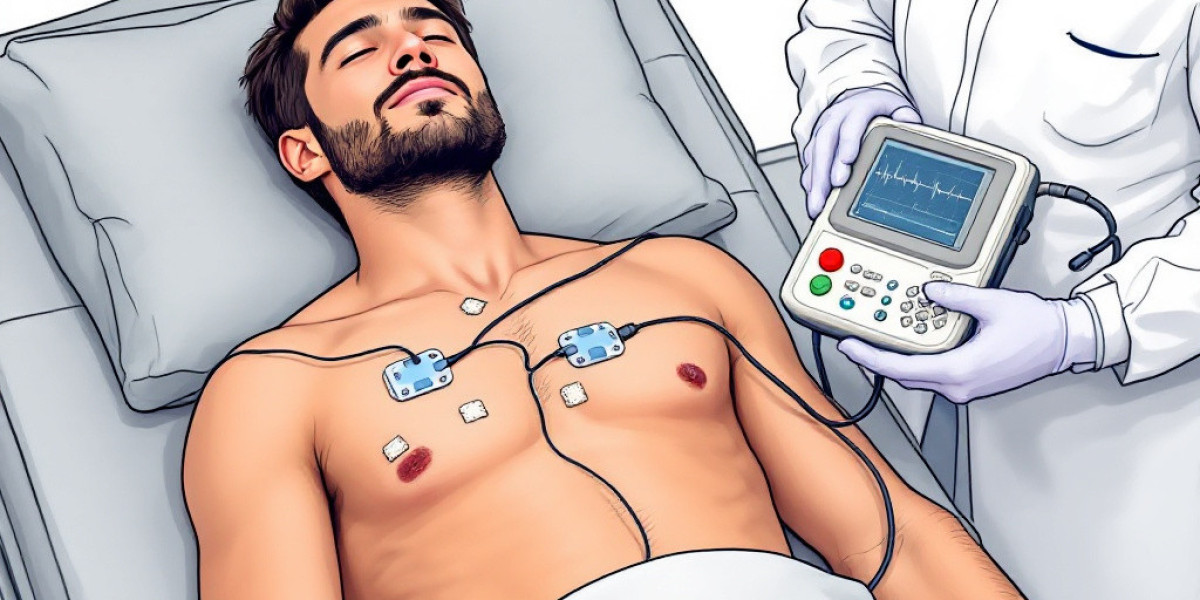ECG Test Near Me: A Complete Guide to Heart Health
Electrocardiography (ECG) is a vital diagnostic test that helps monitor heart health. Whether you're experiencing symptoms like chest pain, dizziness, or irregular heartbeats, an ECG can provide crucial insights into your cardiac condition. If you’re searching for an ECG test near me, it's essential to understand how this test works and what to expect.
What is an ECG Test?
An Electrocardiogram (ECG or EKG) is a non-invasive test that records the electrical activity of the heart over a period of time. It is commonly used to detect heart problems and monitor overall cardiac health.
Why is an ECG Test Done?
An ECG test is conducted for various reasons, including:
Detecting heart conditions like arrhythmia, heart attack, or coronary artery disease.
Monitoring heart health in individuals with high blood pressure or diabetes.
Evaluating heart performance before surgery.
Assessing the effectiveness of heart medications or pacemakers.
Types of ECG Tests
1. Resting ECG
This is the most common type, performed while the patient is lying still. It helps diagnose conditions like irregular heartbeats and blockages.
2. Stress ECG (Exercise ECG)
This test monitors heart activity during physical exertion, usually conducted on a treadmill or stationary bike.
3. Holter Monitor
A wearable device that records heart activity for 24-48 hours, suitable for detecting intermittent heart irregularities.
4. Event Monitor
Similar to a Holter monitor but used over a longer duration, usually for weeks or months, and activated when symptoms occur.
How to Prepare for an ECG Test?
Preparation for an ECG is simple:
Avoid caffeine and nicotine a few hours before the test.
Wear comfortable clothing for easy placement of electrodes.
Inform your doctor about any medications you are taking.
Relax and breathe normally during the test to get accurate results.
Understanding ECG Results
Normal ECG Readings
A normal ECG shows a consistent and steady heart rhythm with evenly spaced peaks and troughs.
Abnormal ECG Readings
An abnormal ECG may indicate:
Irregular heartbeat (Arrhythmia)
Signs of a previous or current heart attack
Enlarged heart or blocked arteries
Electrolyte imbalances
Your doctor will analyze the results and suggest further tests if needed.
Benefits of an ECG Test
Early Detection: Helps in diagnosing heart problems before they become severe.
Non-Invasive: No needles or surgeries involved.
Quick & Painless: The procedure takes only a few minutes with no discomfort.
Guides Treatment: Helps doctors prescribe the right medications or lifestyle changes.
Who Should Get an ECG Test?
Individuals experiencing chest pain, dizziness, or palpitations.
Those with a family history of heart disease.
People with high blood pressure, diabetes, or high cholesterol.
Patients who have undergone heart surgeries or have pacemakers.
Where to Get an ECG Test?
If you are looking for a reliable ECG test near me, ensure the facility is well-equipped and managed by experienced healthcare professionals. Choose diagnostic centers that offer accurate results and comprehensive heart evaluations.
FAQs
1. What is the difference between an ECG and an EKG?
ECG and EKG are the same; ECG is the English abbreviation (Electrocardiogram), while EKG comes from the German spelling (Elektrokardiogramm).
2. Is an ECG test painful?
No, an ECG test is completely painless. Electrodes are placed on the skin to record heart activity without any discomfort.
3. How long does an ECG test take?
A standard ECG test usually takes about 5-10 minutes.
4. Can an ECG detect a heart attack?
Yes, an ECG can detect signs of a heart attack, both current and previous ones, by analyzing heart rhythm and electrical activity.
5. How often should I get an ECG test?
It depends on your medical history and risk factors. Your doctor may recommend it annually or as needed.
6. Can I eat before an ECG test?
Yes, you can eat before a resting ECG test. However, for a stress ECG, you may be asked to avoid heavy meals.
7. Does an ECG show high blood pressure?
An ECG does not directly measure blood pressure but can indicate heart strain caused by hypertension.
8. What should I wear for an ECG test?
Wear loose-fitting clothing for easy placement of electrodes on your chest, arms, and legs.
9. Can anxiety affect ECG results?
Yes, stress and anxiety can temporarily affect heart rhythm, leading to irregular ECG readings.
10. Do I need a doctor’s referral for an ECG test?
Not always. Some diagnostic centers allow walk-in ECG tests, but it’s best to consult your doctor first.








